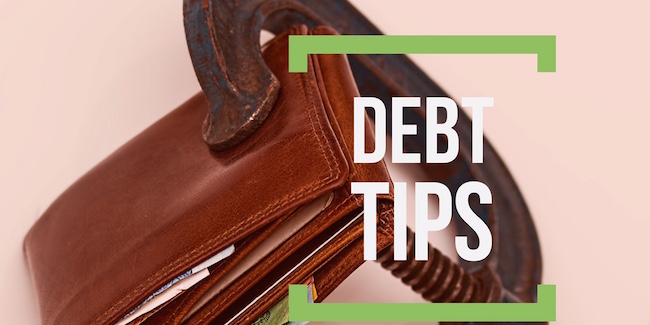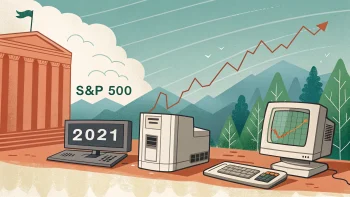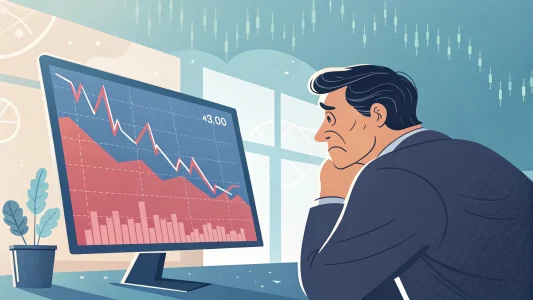Making sensible changes towards a healthier and more robust, less depressive lifestyle. When it grows further, you are force you to take some of the most self-destructive steps such as debt denial, creditor avoidance or social isolation.
When overwhelming debt becomes unmanageable, your stress levels may spike to unprecedented heights. Your financial troubles, then, can manifests into physical dysfunctions and chronic diseases like depression, anxiety, stroke and other cardiovascular malfunctions.
Consumer financial health – The American Report Card
- Nearly 2-2.5 million American consumers have sought a credit counselor’s help to get out of debt and prevent breaking their banks.
- Almost 1 out of every 10 consumers own more than 10 credit cards.
- As per the Federal Reserve’s report, more or less half of consumers couldn’t pay up for a $400 emergency cost without selling one of their personal belongings or taking up a new loan.
- Over half of American households had less than 1 month’s worth of income stashed in an easily accessible savings account. The value is much lower than the 6-month emergency fund, as suggested by the consumer finance experts.
Crushing debt and its psychological bearings on you
Analysts at the University of South Hampton reviewed 65 studies related to debt and mental health. According to their analysis published in Clinical Psychology Review, there is a sound correlation between financial troubles and mental health.
It’s no wonder that debt is a big drag on your life – be it social, economic or personal. It not only affects your credit score adversely, but also your psychological mechanisms.
When debt becomes insurmountable, every part of your life gets covered under a thick, dark cloud. A woeful shadow of darkness would then hover over your relationships, aspirations, and most unfortunately, your confidence.
Hence, getting out of debt at the earliest will prove to be advantageous well beyond your financial health.
Regardless of the priority each commands – your mental illnesses or your debt – the best way to resolve each of them is to address both simultaneously. The catch is, when you’re mentally strong, it’ll become easier for you to handle your financial challenges and emerge victorious. Similarly, when your financial problems have been resolved, improved mental state comes as a bonus.
The trickle-down effect of debt repayment would result in both restored financial health as well as happier personal relationships.
Here is a list of immediate advantages to getting out of debt:
- A better and well-developed connection between happiness & spending
- Better relationships
- The strong mental conviction to avoid debt at all cost
- A healthier self-confidence
- Emancipation from the clutches of debt to pursue ambitions
- A huge emotional relief
- Reduced stress and enhanced health
Objective financial nirvana – Get out of debt or Save! What comes first ?
Pay off debt – The justification
Simple mathematical logic says it’s always better to pay off debt before saving for retirement or raising an emergency fund. You should pay off your non tax-deductible, high interest-rate debt first, prior to jumping off to saving.
Still, matters of debt or personal finance are rarely solved so simply. Most of the time, paying off debt first may not be the right choice for all. Take for instance, you might be forced to take up a new loan just so as to cover an emergency cost.
In this case, you might be better off with having your debts paid off as you’d be cutting down on the huge interest charges a loan may exact out of your dwindled finances. A lot of times, the return on paying off debts are more than the stock market profits or the interest earned out of your savings or checking account that your bank may give.
However, your outlook may change, if your debt isn’t a consumer one. The reason could be low rate and tax-deductible interest charged on the loan.
If you pay off conventional loans such as student loan or a mortgage, then it’ll reduce your overall outstanding principal and other associated interest expenses.
You could make extra payments as much as possible, even if your lender doesn’t revise and cut down your monthly debt payment amount.
With larger monthly debt repayments, you’ll be able to save more dollars in the long run.
When you’re faced with a dilemma whether or not to pay off a certain tax-deductible debt against saving money, you should worry less about enjoying the tax breaks from Uncle Sam more than debt repayment. The tax deductions provided may be lesser than the total interest you’d have to pay toward a loan.
Your top most priority should be to improve your overall financial health and not to maximize your yearly tax deductions.
Save dollars – The pros & cons
The No. 1 reason to save first and get of out debt later is to create an emergency fund. This is because if you focus only on paying off your debts without having a financial cushion to fall back on can backfire. More so, if sudden needs or expenses crop up. At this, you may have to borrow money and thus, faced with a revolving debt once again.
But, if your loan charges a very minimal rate of interest, then you can plan to save first and not the other way round.
According to the experts, you should have at least 3-6 months’ worth of your living expenses saved as an emergency fund. It’s based on how unpredictable your income is. You could start making larger debt repayments, once you have a sizeable amount of emergency fund in place.
You could save first before repaying your debts, if you’re planning about retirement savings, particularly if your employer’s contribution suits you.
You’ll lose one of the most valuable assets of your life, i.e., time, if you delay in saving for your retirement until you’ve become debt-free. Start saving as soon as possible for the retirement, thanks to the compounding returns offered by the banks since even a small contribution may turn out to be huge in the long run.
Towing the middle path – Financial nirvana achieved
Maybe, the most suitable way out of the dilemma of whether or not to save or get out of debt first is to choose the middle path – to strive for the equilibrium between the two.
You need to watch out how you can boost your overall financial health. You could make fresh goals to save for the retirement and resolve your financial obligations simultaneously.
It may happen that you’re paying more on your loans in terms of interest, but an emergency fund can come in handy during unplanned costs like a car repair that could prevent you from falling back into the debt cycle all over again.
Fast lane to get out of debt and accelerate your savings
You may feel lost when you’re looking into the eyes of your debt demons. At that point in time, all you may have is limited or zero savings to support you through such a crisis. Here’s what you could do to get out of debt while your savings grow rapidly:
- Set your financial goals – Developing the habit of paying off debt completely may be difficult during the initial days. Saving money too is another uphill task for many people like you. The challenge would be more if you’ve been a victim of lifestyle inflation. So, it’s better to create mini financial goals and have a reward system in place to keep yourself motivated. The moment you’ve paid off a debt, reward yourself with something sensible. Your reward could come in the form of a dinner at one of your favorite restaurant or something similar.
- Get a Budget – Your financial resurrection plan should start with a budget. It should be carefully developed and must be written down on a plain sheet paper or a spreadsheet. There are many online budgeting tools where you can create a budget and need not be a pro in it. Irrespective of the mode of remuneration you receive (be it bi-monthly or a regular paycheck), it’s almost guaranteed that you’d know how much moolah is going to come your way by the end of a month. You need to keep an account of every dime. A good rule of thumb is to cut back on unnecessary costs as much as possible. You must aim to buy only those items that you need and divide the rest of your paycheck for debt repayments (80% of it) while the remaining part of the money should go into your savings account.
- Track expenses and save everyday – You may overspend or overpay like most others on items that they don’t need. For instance, you’d be able to cut down your food bills, if you shop seasonally at a farmer’s shop, instead of buying foods from your local grocery store. The idea here is to have a budget that tracks your expenses and boosts your savings wherever possible. It’s wiser to buy the staples like shampoos from a discount store rather than purchase the same at high cost from a sophisticated retailer.
- Consider debt relief options – A lot of debts can be consolidated and turned into affordable bits of repayment amounts like student loan debt. But, you must make sure that after consolidating your bills, you aren’t burdened with higher rates of interest or exorbitant payment amount in the future. You could take advantage of the non-profit debt relief organizations that may negotiate for an affordable repayment plan on your behalf with your creditors. Moreover, you can work with a credit counselor who would take charge of your credit accounts and obtain a 0% annual percentage rate (APR) on your debts. However, all your credit accounts will be out of bounds for you till the time all your debts have been paid off completely.
- Make automated payments – Like may others, you too can consider paying off your debts and saving money through automated payments. Assign a particular percentage of your paycheck to be automatically deposited into one of your savings or checking accounts. You can also use a free checking account to make the monthly debt payments. Automate a certain sum out of your paycheck to be transferred directly into your creditors’ account.
Remember that too much of personal restriction doesn’t bode well for your financial health in the long run. Moreover, never put all your eggs in a single basket. So, avoid making debt payments at the cost of saving money or vice versa. Rather, be flexible in your approach toward your finances and learn to manage them from every possible angle as you can.














